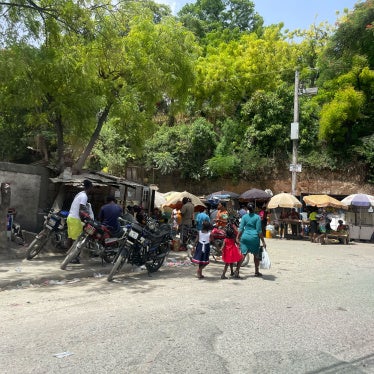(Santiago) — The Chilean Supreme Court has discriminated against a lesbian mother in denying her custody of her daughters on the basis of her sexual orientation, Human Rights Watch said today.
“The court deprived this mother of custody of her children only because she refused to hide her lesbian relationship from them,” said José Miguel Vivanco, executive director of the Americas division of Human Rights Watch. “Lesbians should not be forced to choose between their sexuality and motherhood.”
Karen Atala, a judge from the town of Los Andes, had been awarded custody of her three daughters by an appeal court. Her former husband appealed, arguing that the court had wrongfully put Atala’s rights before those of her children. Accepting the appeal by 3 votes to 2, a Supreme Court panel on Monday held that Atala’s open lesbian relationship disqualified her from the right to custody that separated mothers in Chile enjoy unless barred by exceptional circumstances. The decision is final, and she has no other avenue of appeal.
The panel considered that the children’s emotional and sexual development could be harmed by the absence of a father in the home and “his replacement by another person of the female gender.” It also expressed concern that Atala’s children could suffer from discrimination and rejection since “their exceptional family situation is significantly different from that of their classmates and neighborhood peers.” The justices also criticized the lower court for “a serious fault or abuse” because it chose not to uphold “the preferential right of the children to live and grow up in a normally structured and socially reputable family, according to the proper traditional model.”
The type of appeal used in this case is known in Chile as a recurso de queja (complaint appeal). For the appeal to be successful, the appellant must establish that the sentencing court committed a serious fault or abuse. This invalidates the sentence and makes the judges responsible for it liable to disciplinary action.
“To add insult to injury, the Supreme Court is telling us that the lower court did wrong even though it resolved this issue on solid legal argument and principle,” said Vivanco.
The two dissenting justices stressed that the sentencing judges had proceeded correctly. They argued that Atala’s sexual orientation was not a ground for depriving her of the custody she would normally enjoy as a separated mother under Chilean law. Denying her custody would impose on her daughters as well as her “an unnamed punishment, outside the law as well as discriminatory”
The Atala case has stimulated debate in Chile about the right of gays and lesbians to express their sexual orientation without prejudice or discrimination. Human Rights Watch in May published an article and a letter in the prominent Chilean newspaper, El Mercurio, urging the Supreme Court to study recent jurisprudence of the European Court of Human Rights condemning discrimination on the basis of sexual orientation.
Article 26 of the International Covenant on Civil and Political Rights prohibits discrimination based on “race, color, sex, language, religion, political or other opinion, national or social origin, property, birth or other status.” In 1994 the Human Rights Committeethe U.N. expert body charged with interpreting the Covenantruled that the reference to “sex” in the treaty should be interpreted as including sexual orientation. The Convention on the Rights of the Child requires states to “take all appropriate measures to ensure that the child is protected against all forms of discrimination or punishment on the basis of the status, activities, expressed opinions, or beliefs of the child's parents, legal guardians, or family members.”
Sodomy was decriminalized in Chile in 1999, but prejudice against gays and lesbians is still rife.








